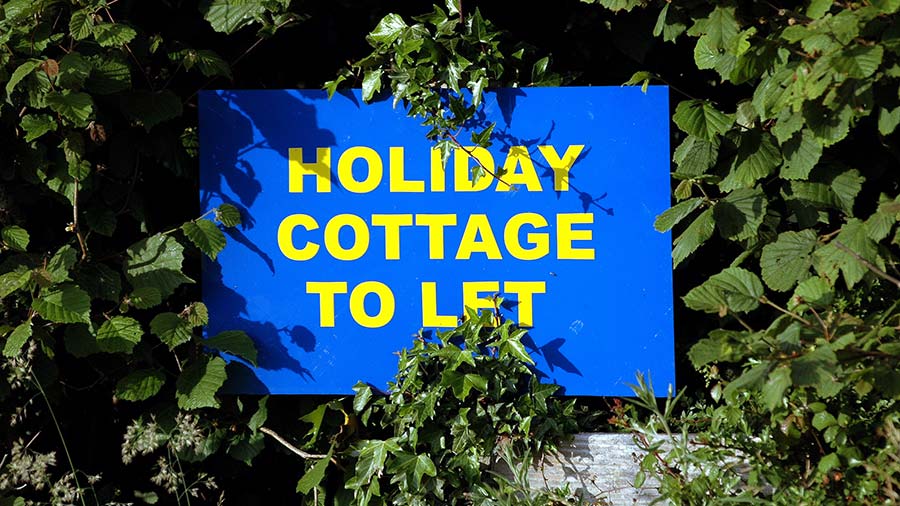Scottish rural tourism faces accommodation licensing regime
 © AdobeStock/Harvey Hudson
© AdobeStock/Harvey Hudson Agri-tourism businesses in Scotland will need licences to rent out their properties from 1 July 2024 – a move described as “damaging’’ for farm businesses reliant on income from short-term lets.
The controversial legislation passed by the Scottish parliament Wednesday (19 January) will apply to all short-term rentals of residential accommodation, including thousands in rural areas.
Local authorities will be required to establish a licensing scheme by 1 October 2022 to vet properties and the people who provide that accommodation.
Existing operators will have until 1 April 2023 to apply for a licence for properties that they operate as short-term lets.
Three-year licensing fees
The fee for a three-year licence is uncapped, with individual local authorities able to set their own rate, but Caroline Millar, sector lead for Scottish Agritourism, said it could be in the region of £1,500.
See also: How to benefit from the growing demand for holiday lets
Mrs Millar, whose family run a holiday accommodation business alongside their beef, sheep and cereal farming enterprise in south Angus, described the legislation as an unnecessary layer of red tape.
“Our members have been running professional businesses for up to 50 years while adhering to strict health and safety requirements, but they will not be able to operate until they are approved for a licence.
“It may take some time for the inspections and approvals, and those time delays could interrupt business.’’
Hefty fines for non-compliance
Businesses that operate without a licence could be fined up to £50,000.
The legislation was developed in response to concerns raised by residents and communities about the effect of short-term let properties on their local communities, including noise, antisocial behaviour and, in some areas, on the supply of housing.
Bodies supporting rural businesses have reacted angrily to the new legislation. Scottish Land and Estates (SLE), which has consistently voiced opposition to the regulations, said it was “extremely disappointed” they had been approved.
Group policy adviser Simon Ovenden said while there was a need for action in some localised situations, there was a danger in this “one-size-fits-all’’ approach.
Bureaucracy and costs fears
“It’s an urban-focused licensing order being imposed on rural Scotland, with evidence suggesting that the excessive bureaucracy and spiralling costs could now lead to many businesses closing, with a knock-on effect for the local communities they serve,’’ he said.
“This is particularly disappointing given the significant difficulty rural businesses have faced during the past two years.’’
The legislation covers the whole of Scotland, including island and rural communities.
Adam Davies, Savills’ tourism and leisure specialist in Scotland, advised operators to start the process of securing licenses early.
“Local authorities may be hard pushed to process a rush of the required short-term let applications before the deadline of 1 April 2023 and this could delay owners’ future ability to promote their properties as holiday lets,’’ he said.
The regulations are based on a business and regulatory impact assessment, which is a Scottish government procedure to help assess the likely costs, benefits and risks of any proposed primary or secondary legislation, regulation, code of practice, or guidance that may have an effect on the public, private or third sector.
However, SLE said it does not include previous Scottish government work on the value of short-term lets in rural communities.
Further issues include no differentiation between well-managed and reputable businesses that already comply with existing health and safety legislation, and more casual, informal hosts, it pointed out.
However, operators will be spared the cost of compulsory public liability insurance since the Scottish government removed this requirement.
The government has already introduced legislation allowing councils to establish short-term let control areas and manage numbers of short-term lets.
